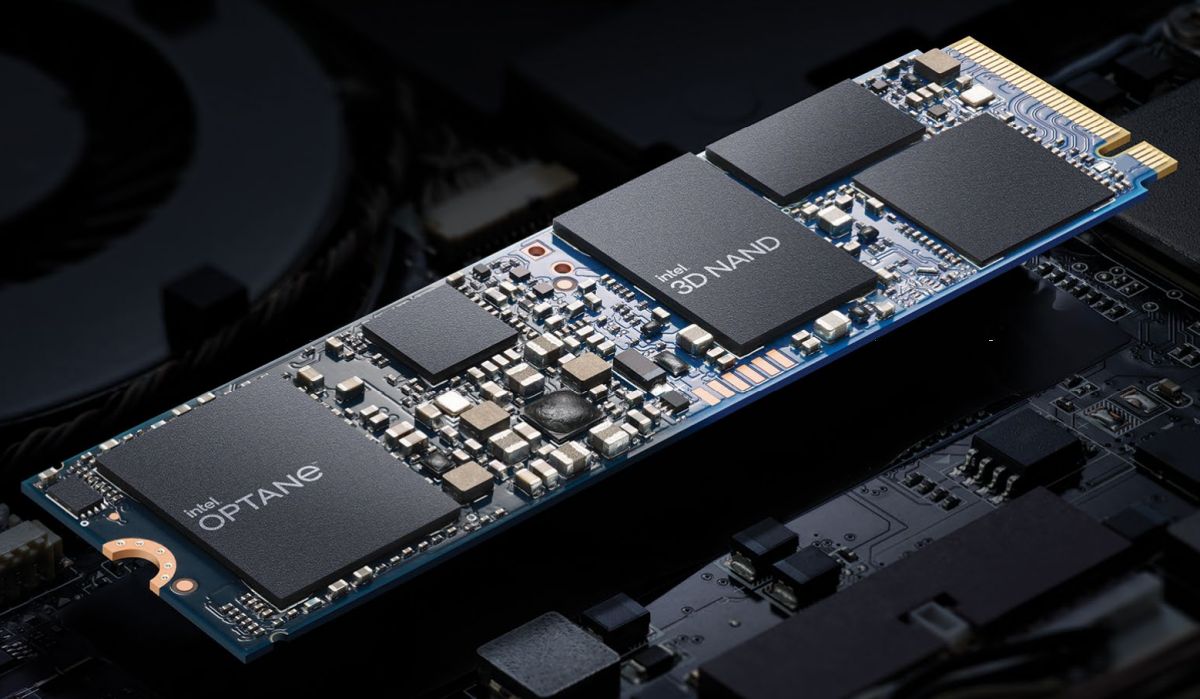According to Intel’s slides, the Optane Memory H20 uses its parent company’s new and improved 144-layer QLC 3DNAND technology. Just like its predecessor, the H10, the H20 uses an M.2 form factor that in turn combines 32GB of Optane Memory and a storage capacity choice of 512GB or 1TB. Oddly enough, the slides mention that the H20 will have NVMe Gen3 speeds, but neither Intel nor the slides seem to say exactly how fast those speeds are. There is, as always, a catch to using the H20. First, it’s clear that the device isn’t for desktop PCs; based on AnandTech’s breakdown, it appears that this storage solution is designed to work primarily with thin and light, high-performance laptops. Further, the H20 will require and 11th generation Core U-series CPU and 500-series chipset, along with Intel RST driver version 18.1 or later in order to launch.
As to when the Optane Memory H20 is expected to be available, Intel has simply said that consumers can expect to see it launch sometime during the second quarter of 2021. (Source: Intel, AnandTech)
